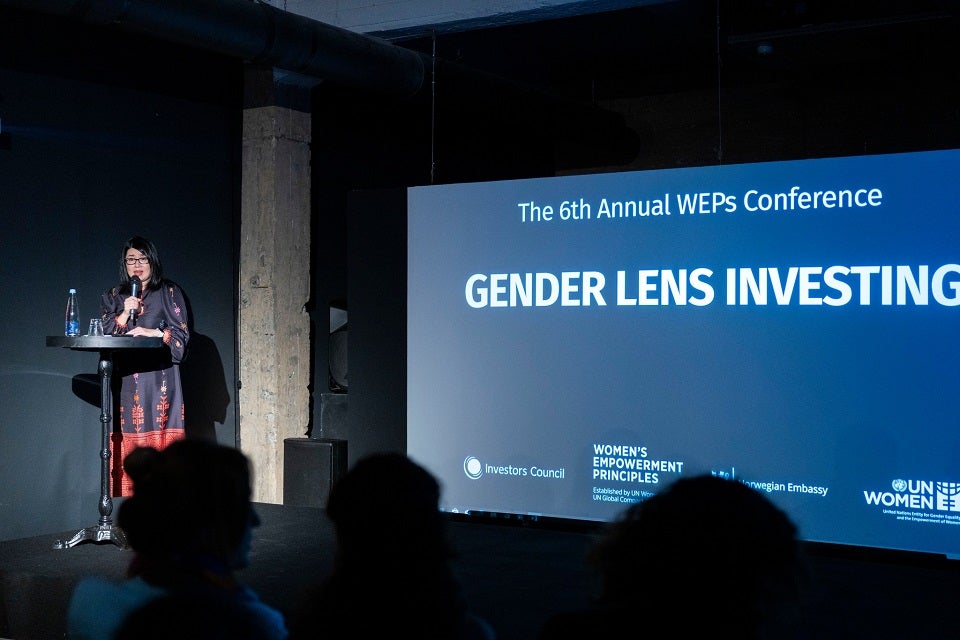Gender aspects of investing discussed at annual WEPs conference held by UN Women
Date:

Gender inequality remains a challenge for the business and investment community. At the same time, in recent years, more and more data have confirmed that the pursuit of equality helps businesses not only to attract more investment and increase revenue but also to make a significant contribution to public welfare.
It was these topics that were discussed at the annual conference on the United Nations Women’s Empowerment Principles (WEPs), which was held for the sixth time on the initiative of UN Women and with the support of the Norwegian Government. This year, the co-organizer of the event was the Investors Council, which provides dialogue between the business community, international financial institutions, donors and the Government of Georgia in order to promote the business and investment climate. The event was attended by representatives of international organizations, the private sector and business associations.
Bergljot Hovland, Ambassador of Norway to Georgia, addressed the participants of the conference in a welcoming speech: “Innovation and entrepreneurship contribute to women’s empowerment by supporting their involvement in public life and their workforce participation, which leads to the strengthening of democracy and economic well-being. In business terms, investing in gender equality is beneficial both in the short and long term.”
During the conference, the participants discussed ways to measure gender equality in companies and the importance of gender-balanced investment teams, as well as the practice of financing women’s businesses. They also discussed the reasons why the companies that are signatories to the WEPs seem attractive to investors.
“The interest of the private sector in the directions of women’s economic empowerment and gender equality has increased,” said Ana Iluridze, gender expert at the Investors Council. “Business has realized that these issues are not only important in terms of social responsibility but also beneficial in terms of income growth and organizational development.”
The number of companies that have signed on to the WEPs in Georgia is already up to 200, which is quite an important result considering the existing scale of the private sector. The WEPs provide companies with a global blueprint on how to empower women in the workplace, marketplace and community. UN Women Georgia has been working on the implementation of the WEPs since 2014, and it carries out this activity with the support of the Norwegian Government.